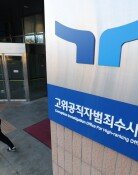Who Will Be Korea`s Next Sports Stars at the Asiad?
Who Will Be Korea`s Next Sports Stars at the Asiad?
Posted October. 28, 2010 11:19,
Koreans who watched the Formula 1 Korean Grand Prix last weekend were disappointed more over the countrys lack of competent drivers rather than the bad weather and poor management of the event.
To increase domestic interest in motor sports, experts say Korea must first foster F1 drivers who develop into stars.
In most countries, the emergence of stars boosts the popularity of the stars` corresponding sports. This is all the more true in Korea, whose people show patriotism whenever they watch international sporting events.
In the 1992 Barcelona Olympics, Hwang Young-jos gold medal in the marathon triggered the development of Korean long-distance runners. Except for Lee Bong-ju, however, the country has failed to produce world-class marathoners since then though many Koreans still consider their nation a marathon powerhouse and enjoy the sport.
In 1998, golfer Pak Se-ri won the U.S. Womens Open with her barefooted fighting spirit. Inspired by her success, many Korean parents urged their daughters to play golf, allowing global stars such as Shin Ji-yai and Choi Na-yeon to develop thanks to Pak`s lead.
Figure skater Kim Yu-nas spectacular victory in this years Vancouver Winter Olympics also changed the Korean sports landscape. She won millions of fans and raised national interest in figure skating, with ice rinks in Korea crowded with young girls wishing to become the next Kim Yu-na.
In swimming, Park Tae-hwans gold medal in the 2008 Beijing Olympics shattered the notion that no place is reserved for Korea in swimming.
Park Chan-ho, the first Korean to play in the U.S. Major League Baseball, also changed Korean perceptions of the U.S. league and the worlds perception of Korean baseball.
With the Guangzhou Asian Games slated to open next month in China, attention is growing over which sport could spark Korean interest thanks to a gold medal.
Rhythmic gymnastics, another event that is rather unpopular in Korea, could be it. Possessing skills and star quality, competitors Shin Soo-ji (Sejong University) and Son Yeon-jae (Sejong High School) hope to shine for their country.
Should Son, who has won quite a few fans, show an impressive performance in Guangzhou, she could see popularity comparable to Kim Yu-nas.
In addition, Jo Hyun-joo (Haksung Girls` High School) advanced to the female vault finals of the World Artistic Gymnastics Championships this month, the first Korean to do so.
Korean gymnasts also say the upcoming Asiad will be an opportunity for gymnastics to be reborn as a popular sport in Korea.
Kim Kook-young (Anyang City Hall), who will compete in the mens 100-meter dash, is also attracting expectations. He broke Koreas 31-year-old record in the 100 meters in the National Sports Festival in June with a time of 10.23 seconds, the third fastest in Asia and just 0.07 seconds behind the Asian record.
His performance in Guangzhou will help shape the perception of Korean athletics and the success of the IAAF World Championship in Athletics to be hosted by Daegu next year.
In swimming, Jeong Da-rae is aiming for the gold in the womens 200-meter breaststroke. Her victory could give Korean swimming another leap forward.
The future of Korean yacht racing is in the hands of Ha Ji-min, the protagonist of the 2012 Ha Ji-min Gold Project spearheaded by the Korea Yacht Association and the Korea Institute of Sport Science. Ha is aiming for gold at the Asian Games ahead of competing in the 2012 London Olympics.
hanwshin@donga.com







